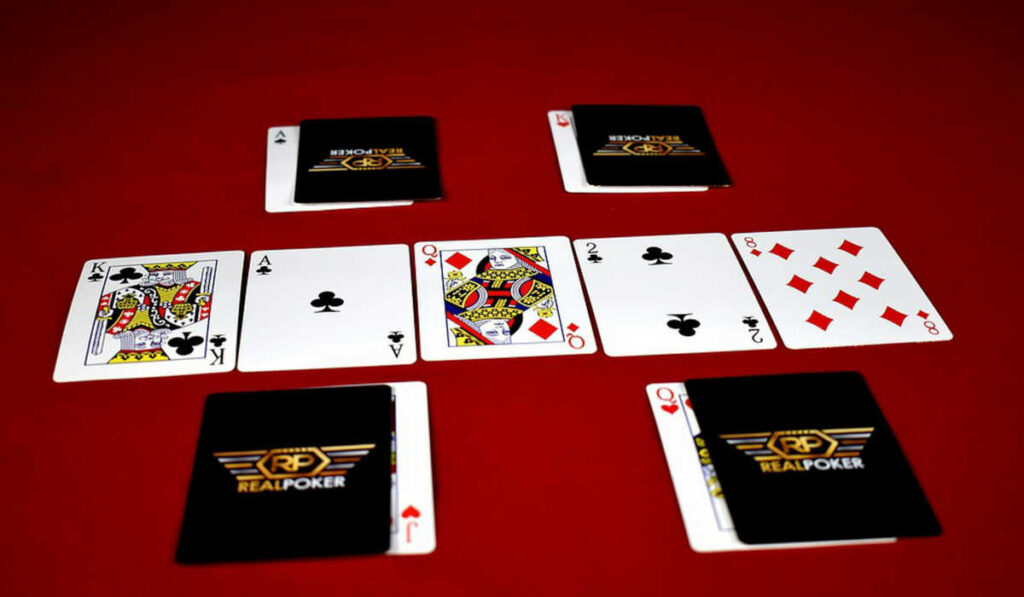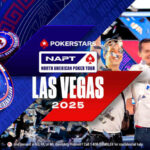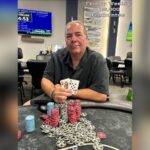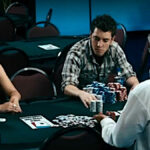Warning: Undefined array key "post_type_share_twitter_account" in /var/www/vhosts/casinonewsblogger.com/public_html/wp-content/themes/cryptocurrency/vslmd/share/share.php on line 24
Poker might look like a simple card game, but under the green felt hides a training ground for real-world strategy. Many beginners might think that poker is just another casino pastime like visiting norge-casino.com for some free spins.
Whether someone prefers slots before sampling Casino is roulette, the mental workout of poker goes far beyond chasing lucky draws. Each hand asks players to gather clues, weigh risks, and act under pressure, the same skills needed when planning a family budget or launching a school project.
Because every chip has value, the game teaches how to protect resources and seize chances at the right moment. Over time, players learn that smart choices win in the long run, and that patience usually pays off more than bold but reckless bluffs.
This article explores four key lessons the card table offers and shows how those lessons translate from Friday night games to everyday challenges at work, school, and home.
By the end, readers will see how a deck of fifty-two cards can shape clear goals, stronger relationships, and smarter money habits without ever having to shuffle chips in a smoky room. The lessons are practical, proven, and ready to be implemented.
Reading the Table: Observational Skills
At a poker table, every twitch of an eyebrow, every hurried bet, and every sigh tells a story. Successful players keep their eyes open and note patterns without seeming rude. They watch for the way a rival arranges chips, note if fingers tap the rail, and listen for the faint catch of breath that slips after a bluff.
They compare the size of chip stacks, the speed of decisions, and even the tone of small talk. By piecing these clues together, they form a picture of each opponent’s possible poker hand.
In real life, the same habit turns meetings, classrooms, or family dinners into valuable sources of information. A careful observer notices when a co-worker seems uneasy about a deadline or when a friend’s voice wavers while making plans.
Because these signals are spotted early, solutions can be offered before a problem grows. Much like guessing a hidden pair of aces, reading human cues helps with negotiation, teamwork, and conflict resolution.
Practicing this skill during low-stakes home games provides a safe environment for learning how to watch, listen, and act with purpose.
Calculating Odds and Managing Risk

Every round in poker begins with imperfect knowledge. Cards remain facedown, and luck can flip the situation in an instant. To stay afloat, a player quickly estimates the odds of drawing a needed card and weighs that number against the size of the pot.
Folding costs a chip or two, while calling might drain the stack. This mental math, repeated hand after hand, sharpens a sense of probability and risk management.
Players memorize simple preflop charts, and they learn that a flush draw hits roughly one time in three, so math never slows the action. Over hundreds of hands, these shortcuts stick and become second nature.
Away from the table, the same habit guides choices like buying a used car, deciding on an insurance plan, or scheduling study time before a big test. Instead of acting on feelings alone, a strategic thinker lists possible results, assigns rough percentages, and invests resources where the payoff looks best.
The ugly word “risk” becomes less scary when it is turned into numbers and compared with rewards. Poker teaches that no decision is perfectly safe, but measured choices usually beat reckless leaps.
Emotional Regulation and Patience
“Going on tilt” is the poker term for letting anger or frustration drive reckless play. Seasoned players learn to spot this feeling, pause, and breathe before wagering another chip. They know that emotion blinds logic, turning a strong hand into a costly disaster.
Practicing self-control during long sessions builds an inner thermostat that keeps reactions steady even when luck seems cruel. In everyday life, the same regulation helps when a project falls behind schedule or a child spills milk on a freshly cleaned floor.
Rather than lashing out, a strategic thinker steps back, asks what can be fixed, and moves on. Patience also pays dividends. A player who folds twenty mediocre hands can cash in when the cards finally align, just as a student who studies a little every day often scores higher than one who crams and panics.
Calm breathing, counting backward, or focusing on the feel of the chair are small tricks that keep the mind centered. Through thousands of quiet decisions, poker trains the mind to value calm focus over noisy impulse.
Long-Term Planning and Adaptation
A single poker hand is only a dot in a much larger picture called the session. Smart players map out the entire night, setting stop-loss limits and profit goals before the first card is dealt. They track their own habits, adjust to table dynamics, and shift gears when a loose player leaves or a cautious one sits down.
This blend of planning and adaptation mirrors long-term projects in business, school, or personal finance. A family saving for vacation, for example, outlines a budget yet tweaks spending when a surprise bill arrives.
The lesson is clear: a plan should be firm enough to guide actions but flexible enough to survive new data.
Poker also highlights feedback loops. Each decision gives instant results—wins or losses—that inform the next move.
Recognizing and using feedback helps students improve study techniques and teams refine work processes. Over weeks and months, small adjustments compound, turning casual efforts into consistent success.




